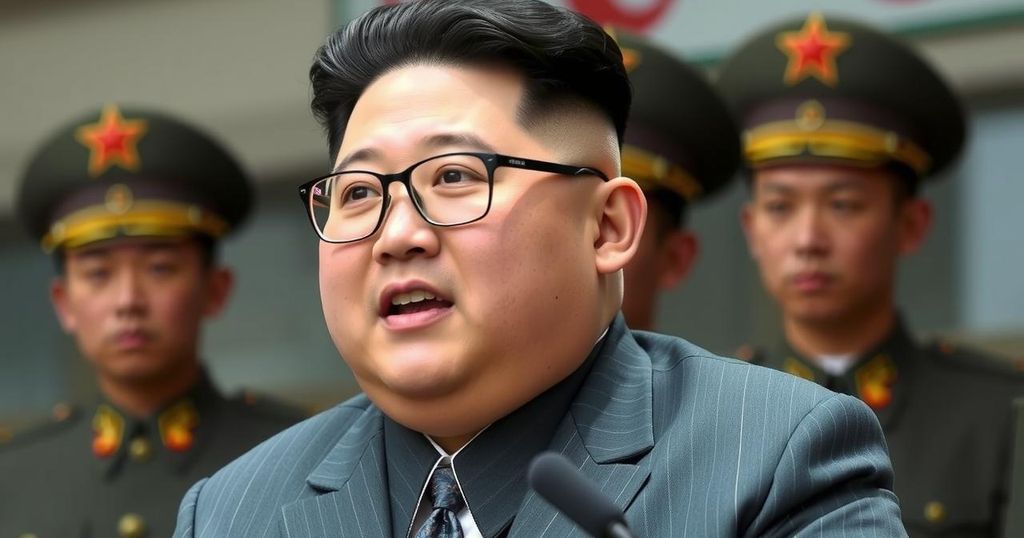North Korean leader Kim Jong Un announced plans for the “toughest” anti-U.S. policy shortly before Donald Trump takes office. This declaration follows a plenary meeting of the Workers’ Party, during which Kim criticized the U.S. and urged for military advancements. The complexities of international relations, including Russia’s involvement, complicate the potential for resumed diplomacy regarding North Korea’s nuclear program.
In a recent address reported by state media, North Korean leader Kim Jong Un declared his intent to adopt the “toughest” anti-U.S. policy ahead of President Donald Trump’s inauguration. As Trump prepares to take office, the potential for renewed diplomacy looms, having previously engaged in three summits with Kim regarding the North’s nuclear ambitions. However, experts believe that any rapid resumption of dialogue is unlikely, given Trump’s initial focus on global conflicts such as those in Ukraine and the Middle East.
During a five-day plenary meeting of the ruling Workers’ Party, Kim condemned the U.S. as “the most reactionary state” and criticized the expanding security alliance among the U.S., South Korea, and Japan, characterizing it as a “nuclear military bloc for aggression.” He outlined a strategic plan for increased military capabilities and emphasized the need for enhanced resilience among North Korean soldiers.
This new stance comes amidst heightened weapon testing by North Korea, aimed at developing more reliable nuclear missiles to threaten the United States and its allies. In response, the U.S. and South Korea have intensified their joint military exercises—actions that North Korea perceives as rehearsals for invasion. Meanwhile, North Korea’s growing military collaboration with Russia, including the dispatch of troops and conventional arms to support Moscow in its conflict with Ukraine, raises further concerns regarding regional security.
In prior negotiations with the U.S., Kim felt that Washington’s consistent hostility had been reaffirmed, leading him to believe that nuclear development was the only assurance against external threats. The complex dynamics involving not only South Korea and the United States but also China and Russia complicate the prospect of denuclearization and peaceful negotiations.
The geopolitical landscape surrounding North Korea has been shaped significantly by its nuclear ambitions and the responses from the United States and its allies. Historically, U.S.-North Korea relations have oscillated between diplomacy and military confrontation. Kim Jong Un’s leadership has been marked by both isolation and attempts at international engagement, particularly during his summits with then-President Donald Trump. However, these diplomatic efforts have faltered amid ongoing tensions, heightened weapon testing, and a critical relationship with Russia. Kim’s recent declarations signify a strategic pivot away from dialogue, reinforcing his regime’s commitment to military strength as a countermeasure to perceived threats.
Kim Jong Un’s announcement of an intensified anti-U.S. policy underscores the deteriorating relations between North Korea and the United States. As Trump prepares to assume the presidency, the complexities of previous diplomatic engagements and escalating military tensions suggest that the path toward denuclearization and peace is fraught with challenges. The alignment of North Korea with Russia, amidst global conflicts, adds another layer of difficulty in resolving these longstanding issues. Ultimately, Kim’s statements reflect a regime committed to bolstering its military capabilities in the face of what it perceives as existential threats.
Original Source: apnews.com






